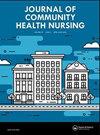年轻脑卒中患者的心理体验和社会融合需求:定性研究的系统综述和荟萃分析
IF 0.9
4区 医学
Q4 NURSING
引用次数: 1
摘要
摘要背景脑卒中后可见的身体功能障碍和看不见的心理影响阻碍了年轻患者重返卒中前的角色和社会活动。目的/目的全面分析年轻脑卒中患者的心理体验和社会融合需求,有利于提高脑卒中后的生活质量和社会融合。方法对10个数据库进行文献检索。纳入文章的筛选和质量评估通过定性评估和审查工具(QARI)进行。进行荟萃聚合以综合纳入研究的结果。我们使用定性研究综述的证据置信度(CERQual)方法总结了置信度的确定性。结果共筛选出5506项研究,其中包括12项。数据综合提出了两个新的主题:(a)从否认中风到接受中风的自我成长过程(高CERQual信心),以及(b)希望恢复中风前的正常状态,但在重新融入社会的过程中有困难(高CERQual信心)。结论脑卒中作为一种创伤事件,扰乱了青年患者的生活结构,没有充分考虑他们的重返社会需求。基于个性化原则的干预措施应关注这一问题,以恢复中风后生活的连续性。本文章由计算机程序翻译,如有差异,请以英文原文为准。
Psychological experience and social reintegration needs of young stroke patients: a systematic review and meta-aggregation of qualitative studies
ABSTRACT Background The visible physical dysfunction and invisible psychological effects after stroke prevent young patients from returning to their pre-stroke roles and social activities. Purpose/Aim To comprehensively analyze the psychological experience and social reintegration needs of young stroke patients, which may be beneficial for improving quality of life and social reintegration after stroke. Methods We conducted a comprehensive literature search of 10 databases. The screening and quality assessment of the included articles were performed by the Qualitative Assessment and Review Instrument (QARI). Meta-aggregation was conducted to synthesize the findings of the included studies. We summarized the certainty of confidence using the Confidence in Evidence from Reviews of Qualitative Research (CERQual) approach. Results A total of 5506 studies were screened, of which 12 were included. Data synthesis suggested two new themes: (a) the self-growth process from denial of stroke to accepting stroke (high CERQual confidence), and (b) desire to regain pre-stroke normality, but having difficulty in the social reintegration process (high CERQual confidence). Conclusion Stroke, as a traumatic event, disrupts the life structure of young patients, and their needs of reintegration are not adequately considered. Interventions based on the principle of individuation should focus on this issue to restore continuity in life after stroke.
求助全文
通过发布文献求助,成功后即可免费获取论文全文。
去求助
来源期刊
CiteScore
1.40
自引率
10.00%
发文量
21
审稿时长
3 months
期刊介绍:
This innovative publication focuses on health care issues relevant to all aspects of community practice -- home health care, visiting nursing services, clinics, hospices, education, and public health administration. Well-researched articles provide practical and up-to-date information to aid the nurse who must frequently make decisions and solve problems without the back-up support systems available in the hospital. The journal is a forum for community health professionals to share their experience and expertise with others in the field.

 求助内容:
求助内容: 应助结果提醒方式:
应助结果提醒方式:


